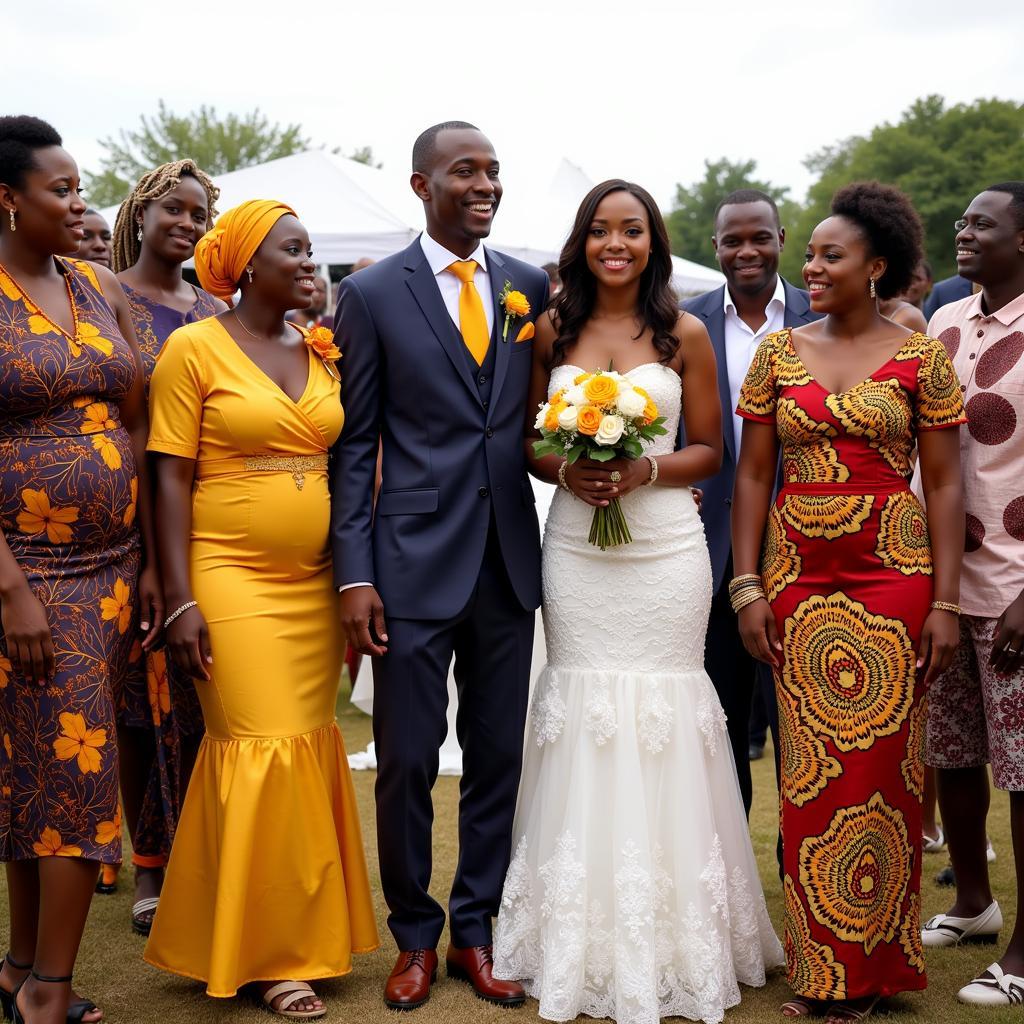African Gestures of Respect: A Journey Through Nonverbal Communication
From the bustling marketplaces of Marrakech to the serene plains of the Serengeti, Africa is a continent renowned for its diverse cultures and rich traditions. While language might be the most obvious form of communication, nonverbal cues, particularly gestures of respect, play an equally significant role in navigating social interactions across the continent. Understanding these gestures offers a deeper appreciation of the values and customs that shape daily life in Africa.
Let’s delve into the fascinating world of African Gestures Of Respect, exploring their meanings, regional variations, and the cultural nuances they reveal.
The Power of Nonverbal Communication in Africa
In many African cultures, what you don’t say can be just as important as what you do. Nonverbal cues, from a simple nod to elaborate handshakes, convey respect, deference, and understanding in ways that words sometimes cannot. These gestures are often deeply rooted in tradition and carry significant weight in social interactions.
Failing to observe or misinterpreting these gestures can lead to misunderstandings or even offense. Therefore, whether you’re a traveler, a business professional, or simply curious about African cultures, familiarizing yourself with these nonverbal cues is essential for building bridges and fostering meaningful connections.
Common Gestures of Respect Across Africa
While specific gestures and their interpretations might vary across regions and ethnic groups, some gestures of respect hold common significance throughout much of Africa:
1. Greeting with the Right Hand: In many African cultures, the right hand is considered the “clean” or “respectful” hand. Always use your right hand when shaking hands, gesturing, offering gifts, or passing objects. Using the left hand for these actions can be considered disrespectful.
2. Bowing or Lowering the Head: Bowing slightly, especially when greeting someone older or of higher social standing, demonstrates humility and respect. In some cultures, a deep bow signifies great respect, while a slight nod is more casual.
3. Removing Headwear: In some African cultures, removing your hat or head covering is a sign of respect, especially when entering someone’s home or a place of worship. This gesture symbolizes that you come in peace and acknowledge the sanctity of the space.
4. Addressing Elders Respectfully: Using appropriate titles and honorifics when addressing elders is crucial. In many African cultures, it’s considered disrespectful to address an older person by their first name unless invited to do so.
Regional Variations and Cultural Nuances
Beyond these common gestures, Africa’s vast cultural landscape gives rise to a fascinating array of region-specific gestures:
1. East Africa: In many East African cultures, offering something with both hands signifies respect and sincerity. For example, when handing someone money or a gift, using both hands demonstrates that you’re giving the gift wholeheartedly.
2. West Africa: In some West African cultures, pouring a libation is a common gesture of respect for ancestors or deities. This involves pouring a small amount of a drink, often water or alcohol, onto the ground while speaking words of honor and remembrance.
3. Southern Africa: In parts of Southern Africa, it’s considered respectful to clap your hands rhythmically when greeting someone or expressing gratitude. The rhythm and intensity of the clapping can vary depending on the context and the relationship between individuals.
Navigating African Gestures with Respect and Sensitivity
It’s important to remember that these are just a few examples of the many gestures of respect found across Africa. The specific meanings and interpretations can vary greatly depending on the country, ethnic group, and social context.
The best way to navigate these cultural nuances is to approach each interaction with an open mind and a willingness to learn. Observe how people interact with each other, ask questions if you’re unsure about something, and always err on the side of caution. By approaching African cultures with respect and sensitivity, you can foster meaningful connections and deepen your appreciation for the continent’s rich tapestry of traditions.
FAQs About African Gestures of Respect
1. What should I do if I accidentally use the wrong hand to greet someone?
Don’t panic! If you realize your mistake, simply apologize and explain that you didn’t mean any disrespect. Most people will understand and appreciate your effort to learn about their customs.
2. Are there any gestures I should avoid in Africa?
It’s best to avoid pointing your finger directly at someone, as this can be considered rude in many African cultures. Similarly, avoid making direct eye contact with someone significantly older or of higher social standing than you, as this can be seen as challenging their authority.
3. How can I learn more about specific gestures of respect in a particular African country?
Doing some research before you travel is always a good idea. You can find information online, in travel guides, or by talking to people from the country you’re planning to visit.
Conclusion
Learning about and practicing African gestures of respect is a journey of cultural exploration that enriches our understanding of human connection. By embracing these nonverbal cues, we demonstrate our respect for the continent’s diverse traditions and create a foundation for meaningful cross-cultural communication.
Remember, every interaction is an opportunity to learn, connect, and build bridges of understanding. So, step into the vibrant tapestry of African cultures with an open mind and a willingness to embrace the power of nonverbal communication.
Need help planning your African adventure or want to learn more about African cultures? Contact us!
Phone: +255768904061
Email: [email protected]
Address: Mbarali DC Mawindi, Kangaga, Tanzania
Our team is available 24/7 to assist you.


